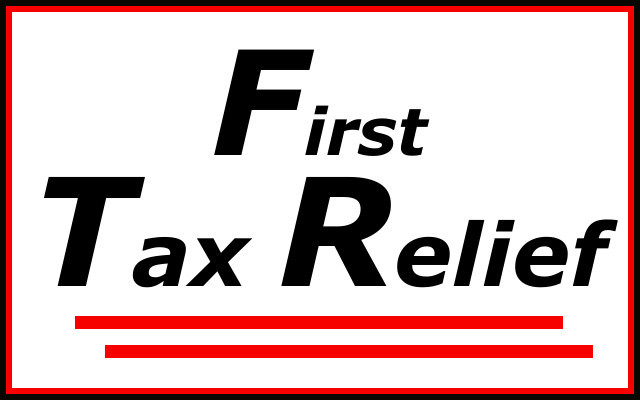Well, before I dive into today’s dose of real world business strategy, you should know that as I write on Monday, the IRS has begun receiving filed federal tax returns.
That means things are about to get real.
Now, for our Cleveland business owner clients (like you), things obviously take a little bit more time. We haven’t filed your return yet. That said, it ALWAYS pays to complete the process as soon as humanly possible for you and/or your team.
There are many reasons that’s the case (from preventing fraud, to ensuring proper payment planning, and more), so let’s get to it, shall we?
(And if you haven’t yet used our services before, feel free to shoot me back an email through the email us button at the top of the page and set a time to chat. We’re in your corner, and will make time to answer your questions, regardless of how “dumb” they might feel to ask. (833) Low-Taxx)
But in the meantime, I wanted to push you toward a mindset that should drive your “tech stack” decisions: Is this software actually helping us grow our business?
Too many businesses that I’ve seen fall into the trap of chasing the next shiny software-object, don’t evaluate it for its ability to drive profitability and sales (whether initially, or in an ongoing way).
So let’s consider that ubiquitous C. R. M. …
Effectively Using Your Cleveland Company’s CRM For Sales Management
“To pay attention, this is our endless and proper work.” – Mary Oliver (RIP)
What comes to mind when you consider your customer relationship management (CRM) system?
The reality is, whatever CRM software you use (be it Infusionsoft, Salesforce, Copper, Pipeline, or any of the many others that are out there) can often drive you to frustration. The blessing and curse of these powerful CRM tools is that despite easy-to-monitor dashboards and metrics, there can remain an ambiguity about how it should be utilized to grow a business.
Now, my intent here is not to provide a comprehensive review of the various CRM platforms. I’ll leave that to the software experts.
But what I would instead posit to you is that no matter which one you use, unless you are putting it in its proper place, you might be continuously frustrated, even if you flee to the greener pastures of the next, shinier CRM to come your way.
“C” Stands for Sales
Think of the term itself: customer relationship management. Those “customers” are the ones keeping your lights on. And if you are going to spend money on a CRM tool, you might as well ingrain its importance for new sales into the minds of each of your team members.
There are obvious administrative and workflow advantages to using an established CRM software, but if it’s not driving a return on investment, why are you using CRM in the first place?
Sustaining existing customer and prospect relationships is critical, but it’s important not to neglect the value of CRM guiding individual sales efforts, whether those happen in a store, online, over the phone or otherwise. It should lead to measurable quarter/year-end results. I’ll say it again: “C” should stand for sales … not confusion.
Collaboration Fuels Clarity
If you’re in sales, recognize you don’t have to play first base, shortstop and center field all at the same time. If your job is to play first base, then focus solely on that position and realize winning is a team effort. Sarah in marketing is a great shortstop. And John in IT loves playing center field.
Consider a regular “CRM meeting” with your team members who use it, and talk about how each department can use the data that it contains for producing new revenue.
Such a meeting should help form and develop a sales cycle.
How can your staff create a collaborative flow so that qualified leads enter your system? Marketing to the ideal customer is obviously of first importance (so make sure your marketing people are mining the right data from your existing customers in your CRM), your sales and support teams need to see contact histories, and your management needs to be able to evaluate various campaigns for profitability — all should be possible within your CRM systems. And all should work together to drive revenue.
(Because as your accountant — as much as I love to see you keeping your expenses down, I equally love to see you bring your revenues UP. Each drive profitability.)
Aye Aye, Captain
Who is steering your CRM ship?
As important as your “on the ground” sales team is to your operation, those in sales management should provide direction and opportunities to grow because of the data you find within your CRM.
With the reports and metrics almost every good CRM tool provides, you or your managers can direct where their team should be focused from quarter to quarter. In addition, this person can help lead those regular CRM meetings and promote a collaborative environment.
Managers have an opportunity to empower employees to cross the finish line. And although it’s easy to plop someone in front of a Ferrari (CRM), it’s a lot more beneficial to first provide them with keys, lessons and roadmaps so they can steer your Cleveland business toward ROI.
Are you ready to get behind the wheel?
How does your business utilize CRM? I would be interested in which platform provides you good metrics. And as always, let us know if there is any way we can help.
Feel free to forward this article to a business associate or client you know who could benefit from our assistance. While these particular articles usually relate to business strategy, as you know, we specialize in tax preparation and planning for families and business owners.
Warmly,
Rich Rhodes
(833) Low-Taxx
First Tax Relief






